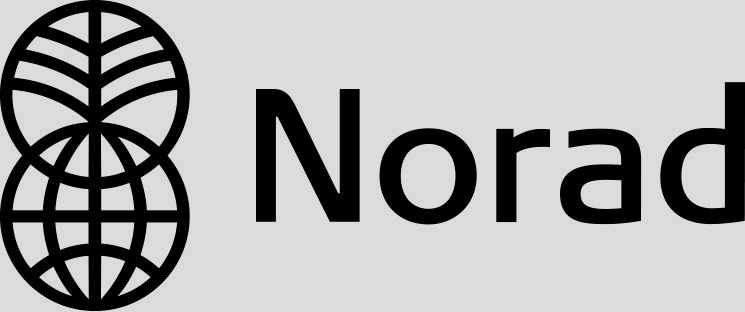Partner Organizations




Development Partners






Seasoned Experts Discussed the PCT Toolkit on Transfer Pricing Documentation Requirements
On Wednesday, February 17, 2021, The Platform for Collaboration on Tax (PCT) held a webinar to launch its fourth toolkit, Practical Toolkit to Support the Successful Implementation by Developing Countries of Effective Transfer Pricing Documentation Regimes. The new PCT toolkit released on January 19, 2021, discusses the documentation recommended under the BEPS Action Item 13 Report and additional measures that tax administrations use to require taxpayers to document all stages of their transfer pricing analysis. It provides:
The 90-minute event which was hosted on Zoom was attended by more than 430 attendees from across the globe. Due to the overwhelming interest in the event, it was also streamed live on YouTube. Attendees included government officials, tax practitioners, and representatives from civil society organizations, business, media and academia.
Moderated by Ms. Vicki Perry, Deputy Director at the Fiscal Affairs Department, IMF, the webinar kicked off with a presentation of the toolkit. Ms. Melinda Brown, Sr. Policy Adviser at the OECD described the process of development of the toolkit and thanked stakeholders for their comments, which helped release an improved final version. She mentioned that the authors consulted with governments and stakeholders to provide a resource for tax administrations that are considering updating transfer pricing (TP) documentation requirements. She emphasized that the toolkit is not prescriptive. Instead, it refers to existing international practices and standards, and country practices of over 30 jurisdictions are included in the toolkit along with some sample legislations for countries to consider. Ms. Wanda Montero Cuello, Tax Policy Adviser, OECD mentioned that its use will help tax administrations in risk assessment, selection of audit cases, and planning and conducting the audit. The toolkit will help promote certainty for taxpayers. She acknowledged that there must be a balance between the tax administration’s data needs and minimizing taxpayers’ compliance costs. She described the documentation (master file, local file, CbC report, questionnaires and schedules) dealt with under the toolkit and the policy options and guidance offered in it. Mr. Colin Clavey, Consultant, World Bank flagged follow-up issues for discussion such as extending international or regional alignment of approaches to schedules or transfer pricing returns; the impact of simplified transfer pricing approaches on documentation and whether they are likely to reduce compliance burdens; the costs of maintaining TP documentation and how to reduce them through simplification; improving the quality of TP documentation and Country-by-Country (CbC) reporting to make it more valuable and informative; and the concerns around access to TP documentation and CbC reporting, especially for developing countries.
The toolkit presentation was followed by a panel discussion with a distinguished set of panelists from civil society, governments, businesses and practitioners. Mr. Michael C. Durst, Senior Fellow at the International Centre for Tax and Development (ICTD) commended the usefulness and accessibility of the toolkit. He, however, warned of the inherent limitations of comparables-based transfer pricing rules, mentioned that TP documentation requirements draw attention away from broader transfer pricing reform efforts and that the problem of availability of useful data remains unsolved. He concluded by saying that the value of CbC reporting for risk assessment purposes should not be overestimated. Mr. Alex Evans, Senior International Auditor with the Canada Revenue Agency mentioned that the compliance landscape is better informed by robust documentation and that the toolkit fosters comfort with more detailed information. In particular, the useful sections in the toolkit were confidentiality, penalties, low-risk enterprises, and consistency options. Standardization of documentation reduces the compliance burden on taxpayers and levels the playing field for tax administrations in terms of access to information. Mr. Moses K. Yidana, Head of Transfer Pricing at Ghana Revenue Authority reflected that for developing countries, a major issue is obtaining the information on related party’s transactions. Another main challenge is the availability of comparables data, and he shared his view that the master file and local file requirements can address these challenges to a certain extent. He also discussed the cost burden, for both companies and tax administrations. Mr. Kamlesh C. Varshney, Joint Secretary (Tax Policy and Legislation) with the Ministry of Finance, India mentioned that CbC reporting has proved useful for risk management as previously only a simple document that captured elementary information was used for risk assessment. Access to the master file and CbC reporting will substantially improve the selection of audit cases. Earlier, information filed in respect of local entity’s leg was exhaustive but there was limited access to information in respect of the non-resident entities. However, access to the master file and CbC reporting is expected to ameliorate this situation. The effect on dispute management is more mixed, though it is expected to help resolve disputes faster when they do arise. Mr. Fernando Becerra O’Phelan, International Taxation and Transfer Pricing Manager at The National Superintendency of Tax Administration (SUNAT), Peru mentioned that Peru will exchange the first set of CbC reports reciprocally for the first time this year. He mentioned that the threshold over a turnover of 750 million Euros as the threshold for CbC reporting needs to be reduced. He suggested consideration of entity-by-entity or transaction-by-transaction reporting in the future. He talked about the resource constraints on tax administrations and the need to utilize CbC reporting as but one of many tools in tax administration’s toolbox. Integrity assessments and other special measure approaches offer additional ways of enforcing TP rules in developing countries.
In addition to country perspectives, Ms. Rocío Bermúdez, Head of Transfer Pricing at Repsol and Vice Chair of the Taxation Commission at International Chamber for Commerce (ICC) provided the taxpayers’ point of view, by bringing up three ways in which the toolkit supports tax compliance by multinational enterprises (MNEs): creating procedural rights which create an environment of tax certainty, balancing tax compliance costs with data needs, and considering confidentiality and appropriate use of the information. Mr. David Ernick, Principal in the Transfer Pricing Practice of PricewaterhouseCoopers’ (PwC) Washington National Tax Services Office presented the practitioner’s perspective. He stated that the largest practical challenge in TP documentation relates to the complexity and it is hard for companies to comply and need practitioners to support. He said that the re-thinking of permanent establishment rules and unilateral digital services taxes are being added on top of existing rules. He mentioned that stability in transfer pricing administration and rules may support better compliance by taxpayers, standardization and uniformity make compliance easier. He recommended that any substantive changes to transfer pricing rules should be based on a cost-benefit analysis. Following the panel discussions, the panelists responded to select questions from the attendees during the question-and-answer session.
The event replay and the presentations are available HERE. For more information on future PCT events and workshops, please sign up for the PCT Newsletter.









